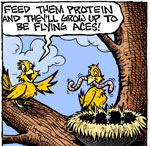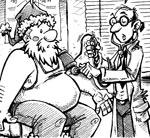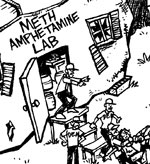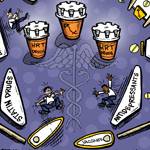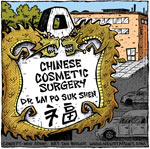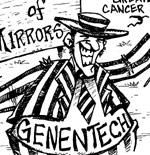fVitamin E and Selenium - The Nutritional Combination that Fights Cancer
| Share on Facebook | Share on Twitter | Share on Google+ |
Some of the most important discoveries in medical science are accidental.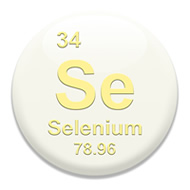 In the 1990's, scientists at the University of Arizona in the USA tested selenium supplementation as a means of fighting skin cancer. They were disappointed to learn that giving their study participants 200 micrograms of selenium a day (about three times the recommended minimum) did not reduce the risk of skin cancer.
In the 1990's, scientists at the University of Arizona in the USA tested selenium supplementation as a means of fighting skin cancer. They were disappointed to learn that giving their study participants 200 micrograms of selenium a day (about three times the recommended minimum) did not reduce the risk of skin cancer.
However, taking extra selenium did reduce the risk of other kinds of cancer:
- There were 45 per cent fewer lung cancers.
- There were 58 per cent fewer cases of colorectal cancer.
- And among the men in the study, there were 63 per cent fewer cases of prostate cancer.
Among the clinical study participants who took selenium, there were 50 per cent fewer deaths from cancer overall.
Selenium, it turns out, doesn't work its anti-cancer action by itself. Selenium is a key component of an enzyme called glutathione peroxidase. In turn, glutathione peroxidase recharges vitamin E.
If you don't have vitamin E, the glutathione peroxidase does not have anything to recharge. And if you don't have the selenium, then vitamin E in overdose can behave as a pro-oxidant, doing the damage it is is intended to prevent.
A study published in February of 2011 illustrates that it is a big mistake to use one supplement in high doses without the other. Based on the early favorable experience of the University of Arizona investigators, scientists at the University of Wisconsin and the Medical College of Pennsylvania recruited over 33,000 men to see if using vitamin E and selenium together might prevent prostate cancer.
The study began in 2002 and was terminated in 2008. The reason the investigators terminated the study early was that men who took only 400 IU of vitamin E a day-and the investigators did not use a balanced, natural form of vitamin E-actually had a slightly increased risk of prostate cancer. The effect was not significantly significant, but the researchers weren't going to take any chances. They quickly realized their mistake:
The researchers found that you can't fight cancer with just the cheap, synthetic form of vitamin E. As their pre-trial research had told them, they actually needed natural vitamin E, with as many cofactors as possible.
There are just a few things you need to know about the specific form of vitamin E that can help you fight cancer. The kind of vitamin E you find in soybean oil capsules on sale for $1.99 at the big box discount stores does not help your body fight cancer. These products are made with dl-alpha-tocopheryl acetate. This was the kind of vitamin E used in the anti-cancer study that was doomed to fail before it was ever started.
This product can build up your vitamin E supplies in the liver quickly, but it doesn't have as much antioxidant potency as synthetic dl-alpha-tocopheryl succinate or natural d-alpha-tocopheryl succinate. Removing the acetate from the vitamin E depletes pancreatic enzymes.
Succinate, on the other hand, can pass through the lining of the intestine into the bloodstream intact. It does not deplete other enzymes. The succinate products offer free radical fighting protection from both the vitamin E part of the molecule and the organic acid (acetate or succinate) part of the molecule.
For preventing cancer, it's d-alpha-tocopheryl succinate your body needs. The cheaper vitamin E acetate is great in skin care products, but taken internally, it won't fight cancer.
Selected References:
Lippman SM, et al.
Effect of selenium and vitamin E on risk of prostate cancer and other cancers: the Selenium and Vitamin E Cancer Prevention Trial (SELECT) JAMA. 2009;301:39-51.
Nam RK, et al. Prevalence and patterns of the use of complementary therapies among prostate cancer patients: an epidemiological analysis. J Urol. 1999;161:1521-4.
-
Skin CareMen Skin Care
-
Free ResourcesFree eBooks
-
Half of the modern drugs could well be thrown out of the window, except that the birds might eat them.Dr. Martin Henry Fischer
-
Featured Health SupplementYou will find highly beneficial ingredients in Total Balance
 which are quite rare in other supplements either due to cost, or the need to protect them via enteric coating. Such as L-Glutathione, Resveratrol, RNA, ATP…and many more.
which are quite rare in other supplements either due to cost, or the need to protect them via enteric coating. Such as L-Glutathione, Resveratrol, RNA, ATP…and many more.
-









